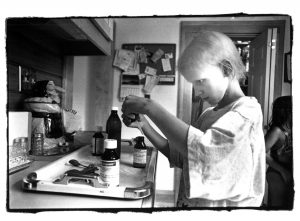I am quite fond of the acronym ‘FWP’. I will often throw it out there after someone asks me about a challenge at work, just to remind myself that my problems are so few and so incredibly small relative to those of the majority of the people on this planet.
Recently, I was made wholly aware of the fact that the challenges I have with my prosthetic leg are also rooted in the first world context.
I have spent a fair amount of time in South-East Asia as part of my professional life. Every time I return to this part of the world I am reminded of how much I take for granted the luxuries of the first world – education, health care, potable running water, roads, transportation infrastructure, a safe and secure food supply, security, a functioning justice system, the list goes on and on. And every time I’m in South-East Asia I try to put money into the local economy in the form of service consumption because it seems to be one of the easiest ways to get money into the hands of people who need it, particularly women.
So the last time I was in Indonesia I went for a local massage. The woman asked me to take off all my clothes, as you are expected to do in these places. I’ve had a few massages before in various locations including India, Sri Lanka, and Indonesia, so I’m used to having women ask what happened to my leg. It’s interesting that what people guess to be likely the cause varies by setting. In Sri Lanka and the United States, I am most commonly asked if I am a soldier, while in Indonesia and India the first guess is usually motor vehicle accident.
Traffic accidents are one of the leading causes of disability in places like Indonesia, and one only needs to step out onto the street to realize that there are a lot of accidents involving pedestrians. I can only imagine that with the standard and availability of health care, limb loss is a common outcome.
In this instance, when I told the woman that I had been very sick as a child she was quiet for a while, and then said something to the effect of ‘if you were a woman in Indonesia you would not leave your house.’ That was it – no follow up, no explanation, just those words. Her simple statement broke my heart.
It is because I was born in the first world that I received the treatment and surgery necessary to survive childhood cancer. It is because I live in the first world that I have access to people like Jon Allen who equips me with best prosthetics available to live an active life. And while I have had the experience of feeling marginalized as a result of my artificial leg, never to the degree that this woman so plainly described for me. I can only imagine the poverty and trauma that can stem from limb loss in these types of settings. I hope, with naïve optimism, that my presence in places like Indonesia shows people that such social exclusion is not the only way of responding to limb loss.
Mostly though, at the end of this encounter I was conflicted with emotion that was equal parts gratitude and powerlessness.

 © Cathie Coward
© Cathie Coward